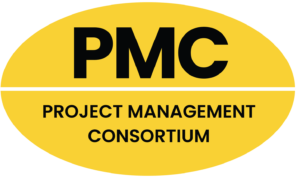Construction projects are becoming increasingly complex. Today the success of construction projects relies heavily on comprehensive planning and scheduling of jobs. All-in-all construction planning is a challenging yet fundamental activity as far as execution and management of projects is concerned. It is important as firms need to integrate all construction phases and tasks that have to be completed within a given timeline and budget.
For successful project management, the key ingredients are planning, scheduling, and tracking individual functions. To achieve your construction goals your scheduling needs to adapt to planning in terms of job costs, scope, and resource management. It essentially covers analyzing risks, procurement, and communication and includes the process of adaptation into the operational workflow system.
Besides, large construction projects are likely to fail if there are hidden costs, timelines are not met, and if there is no effective plan and schedule in place right from the start. This is where the need for construction management software for projects arises. To stay on the same page with task managers and subcontractors, tech deployment offers a solution to integrate all workflow for contractors.
Why is construction planning & scheduling important for a firm?
Having a proper construction plan and schedule in place dictates how the project will be completed in time. To ensure productivity and efficiency, it is crucial to put together a specific construction schedule.
With a construction schedule, you can manage resource allocation by monitoring each phase of the process. Besides, having a plan in place allows you to avoid cost overruns and gives all stakeholders time to allocate and manage each activity.
Apart from this, planning and scheduling also constitute that you are preparing meticulously ahead of time. It provides a framework for when and how the correct quantity of materials will be used when construction allocation happens. The aforementioned plan is also put in place to ensure quality too.
When materials are actively tracked that are necessary for the job, it also defines your sequences, methods, and processes. This also allows you to improve your quality control measures. It also makes sequencing of work easy.
Avoid delays and cost overruns as by planning ahead you can get total control of your project. This is why scheduling and planning are of supreme importance.
What is construction planning and Its components?
Construction planning is a process that requires all parties to collaborate and put a well-thought-out plan in place. As construction projects vary in size and types, it also becomes complex and extensive for builders to handle.
Hence the need to plan and schedule arises and each task completion is defined in specifics. Also, the process of workflow is elaborated in detail to provide a framework or a map to help the team. It helps real estate developers and construction managers to see if the completion plan is aligned with the project or not.
It also involves executing your project and this is where selecting the right construction-specific technology also comes into play. After all, creating and developing a construction plan is a challenging and critical task. This is the reason you need to have visibility and control over project progress. Trusted builders like Stockwell Homes emphasize this approach by integrating meticulous planning and advanced project management tools to deliver high-quality homes on time and within budget.
Components of Project Planning
- Documentation- Having required documents involving payroll, revenue, expenses, and tracing costs at times. With construction accounting software, this task becomes more simple as easy-to-see charts can be viewed from anywhere. But document tracking is an important function as it elucidates what’s going to be constructed in simple words.
Whether it is specifications, submittals, RFQ, ASI, Notices, pending change orders, and RFI all documents need to be tracked and monitored. Some other examples of construction planning and scheduling are field orders, drawings, blueprints, licenses, and approvals.
- Performance measures- In a construction project, there are already some approved starting points such as baseline schedule, scope, and baselines for costs, this helps managers to keep track, ensure visibility, and monitor project progress.
- Plan to maintain baseline- When plans are sidelined or a project gets deviated from due course, a baseline management plan comes into the picture. If an issue of variances to baseline crops up and the need of handling them arises then documentation should be the norm.
Moreover, a high-level selection of project objectives for workers to build upon is important. This also helps you in not overshooting your budget and achieve project goals.
Five phases of construction:
- Initiation: During the initiation phase risk analysis is carried out. This involves identifying major risks at the start of the project and make a contingency plan in case anything occurs. Project evaluation and identification of objectives also are done around this time.
- Planning: Here you make a plan to meet project goals. It usually means the stage where you outline the details for further development of the project. This framework takes care of listing everything like control measures, targets, building codes and customer criteria. After all this, you are ready to execute the project.
- Execution: The construction manager now takes on the mantle to implement the plan. If any change or deviation occurs, it has to be promptly addressed and corrected. Moreover, keeping track of project progress is a must during this phase. This is where a construction ERP software with project management functions is of great help to the builders.
- Performance: Track the progress of the project and ensure that you are abiding by the plan and schedule in the first place. Often, things will change but more or less sticking to a schedule is important.
- Closure: Compiling the list of incomplete tasks and assigning a member to finish off the unfinished work is taken care of at this stage. Inform the stakeholders and hand over the project to the customer.
Conclusion:
As we can see a lot of work is involved in construction planning and scheduling so having an all-in-one construction software can save owners time and resources. Having a project done efficiently means your clients will be happy. With the help of construction software solutions, you can outline, schedule, and automate activities that can help you meet the time frame. Overall construction scheduling and planning is a crucial function and for your success, you need to pay better attention to it.
Author Bio: Ed Williams is the Senior Team Lead at ProjectPro, an integrated construction accounting software. He holds a massive industry experience and is a Microsoft Dynamics expert who is focused on successful implementations. He is a visionary leader and always aims to deliver the best to the construction and project-oriented industries.




























